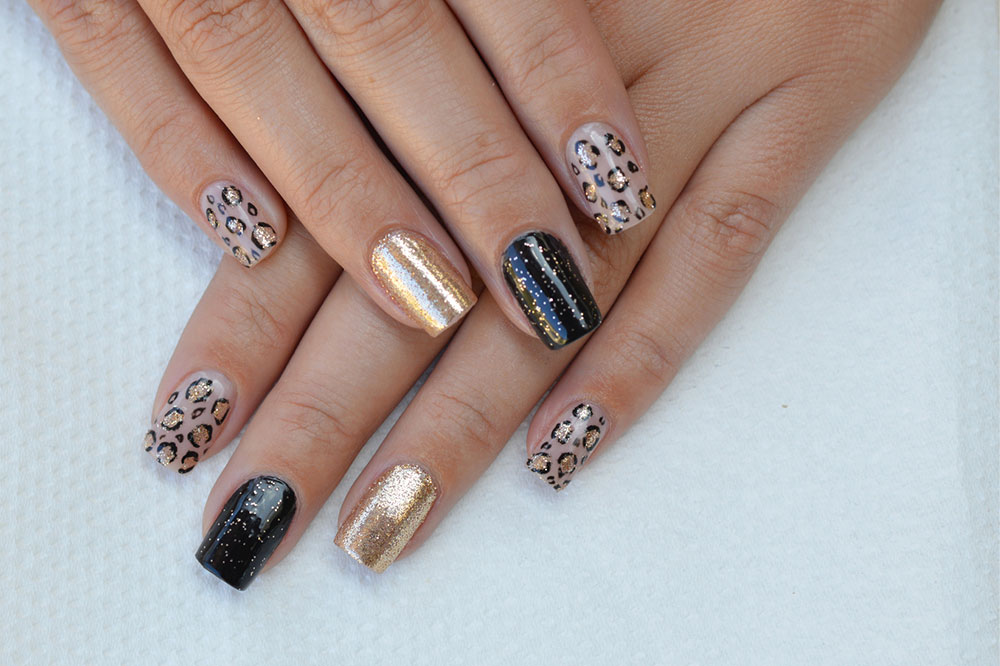Things to do and avoid for healthy nails

One may have weak nails if they bend, chip, or break easily. This is a common problem, making one use acrylic and gel nails to get the length and shape they design without relying on their own nails. However, this is only a temporary solution for brittle nails. Making a few changes, like eating well-balanced meals, practicing good hygiene, and protecting their nails, can help restore their health and make them stronger.
Things to do
Staying hydrated
Water is crucial for maintaining a healthy mind and body, which includes nail health. If one does not have enough water and fluids during the day for the nails to get moisture, they may experience brittle nails. Maintaining optimum hydration levels will help one retain moisture in the nails and strengthen them.
Using mild nail products
One should skip nail paints and other products that contain compounds like formaldehyde, toluene, and DBP. All of these are harsh on the nails and can end up weakening them. One can try to find brands known for non-toxic, mild nail polishes. Products that do not contain these 3 harsh ingredients often come with “3-free” labels. One might also find some 5-free and 7-free paints that skip harsh chemicals like camphor, xylene, formaldehyde resin, and TPHP. Further, one should use only acetone-free removers to prevent dryness.
Minimizing exposure to soapy water
While hydrating is crucial, soaking in soapy water for long periods can harm the nails. One can observe their hands beginning to prune after a long shower. It is not just the skin, nails too can get dehydrated when exposed to such water for a long time, say during a bath, while doing the dishes, or even swimming. While water shouldn’t weaken the nails directly, the soap can dehydrate the nails, making them more likely to break. One of the easiest ways of recovering from this side effect is moisturizing the nails and the skin around them right after washing dishes or soaking the hands in water.
Choosing the right supplements
Although research is ongoing, biotin supplements have been known to help strengthen hair and nails while improving skin health. The body is unable to store a few water-soluble vitamins, including biotin or vitamin B7. So, one can consult a doctor and add biotin supplements to their daily routine to get an adequate amount of this nutrient. For any visible results, one will have to be consistent with taking supplements for about 4 to 6 months. One can also choose foods with biotin to increase the daily intake of the vitamin.
Limiting gel and acrylic nail application
Gel and acrylic nails are frequently touted as easier alternatives to growing and shaping natural nails. They are even a popular option for those who have trouble growing their nails. However, acrylic and gel paints can weaken and dehydrate nails, making them brittle. Further, to apply acrylic nails, one may have to file and buff their nails quite a bit, making them thinner and weaker in the process. Additionally, frequent touch-ups mean the nails are being exposed to loads of acetone. If one intends to get gel or acrylic nails, they should schedule the appointments with enough breaks in between for the nails to breathe.
Things to avoid
Cutting cuticles
As common as this is, healthcare experts recommend not picking at or cutting cuticles—clear, dead skin around the nails. Cuticles protect against bacterial infections. If one wants a clean, manicured look, it is preferable to push back the cuticles instead of cutting them off. One can get gently get rid of hangnails—torn pieces of skin around the nail. However, cutting the skin all around the nails can expose the area to bacterial infections. So, one should avoid cutting cuticles.
Using them as tools
One may use their nails to open or scrape stuff, especially when they can’t find the right tools quickly enough. But nails should not replace letter or package openers, as here one risks bending, chipping, and breaking their nails. Further, poking and prying can damage the cuticles, increasing the risk of infections. So, no matter how tempting it is, one should avoid using their nails as tools.
Picking at the nail polish
If one picks at or repeatedly peels old nail polish, they are actually picking at the nail bed, getting rid of the top layer and making nails more prone to breakage. Further, heavy lacquer application can cause the polish to peel. To make the nail paint last longer, one should wait for a while before applying each coat. This will allow the solvent to evaporate and leave behind a longer-lasting paint. One should put on gloves while carrying out chores, especially those that can chip away at the polish and make one want to peel it instead of using a remover.
Overusing hand sanitizers
Hand sanitizers are loaded with drying ingredients. Constantly using them can lead to dry and brittle nails in addition to extremely dry hands. If one cannot avoid using sanitizers, they should limit the number of times they apply it in a day or make sure the liquid does not touch the nails. Here, hand sanitizer wipes could be a better solution. Alternatively, one can apply some moisturizer after each use to keep the nails and the skin around them hydrated.
Using acetone-based products
Acetone is a common nail polish-dissolving solvent. As quick and efficient as acetone is, it is one of the top reasons why people have dry nails. It is a harsh compound, so frequent usage can weaken the nails, making them more likely to split or break. One should avoid acetone-based polish removers as much as possible. Alternatively, one can try an essential oil-based remover that can gently and effectively remove the polish without harming the nails.







